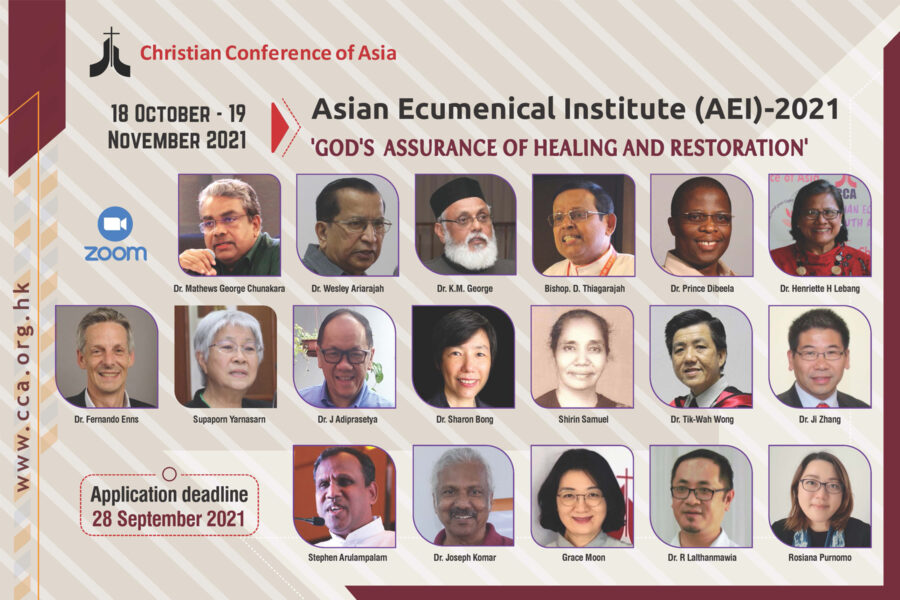CCA’s annual Asian Ecumenical Institute (AEI)–2021 to focus on the theme ‘God’s Assurance of Healing and Restoration’
 AEI Faculty–2021
AEI Faculty–2021
The Asian Ecumenical Institute (AEI), the annual ecumenical formation and ecumenical leadership development training programme of the Christian Conference of Asia (CCA) will be held from 18 October to 19 November 2021.
Admissions to AEI–2021 will be offered to 30 students between the ages of 25 to 35.
Prospective students will be selected on the basis of competence, gender, and confessional balances, national and sub-regional representation, and the ability to effectively communicate in English.
The deadline for receiving applications for AEI–2021 has been extended to 28 September 2021.
The theme of AEI–2021 is ‘God’s Assurance of Healing and Restoration’, which will examine on various aspects of ecumenism and the future of the ecumenical movement in Asia, as well as focus on other topics of importance such as theology and ecumenism within Asia’s multi-religious and pluralistic contexts.
The AEI has been an immersive platform for students and young leaders from across Asia to develop new insights and perspectives in ecumenism and the ecumenical movement, under the guidance and mentoring of internationally acclaimed teaching faculty from diverse disciplines.
The faculty of AEI–2021 will include experts such as Dr Mathews George Chunakara (CCA), Dr Wesley Ariarajah (Sri Lanka), Dr K.M. George (India), Bishop Daniel Thiagarajah (Sri Lanka), Dr Henriette Hutabarat-Lebang (Indonesia), Dr Fernando Enns (Germany), Supaporn Yarnasarn (Thailand), Dr Joas Adiprasetya (Indonesia), Dr Sharon Bong (Malaysia), Shirin Samuel (India), Dr Tik-Wah Wong (Malaysia), Dr Ji Zhang (Australia), Stephen Arulampalam (Sri Lanka), Dr Joseph Komar (Malaysia), Grace Moon (CCA), Dr Ronald Lalthanmawia (CCA), and Rosiana Purnomo (CCA).
The students of AEI–2021 will also receive the opportunity to participate in parallel programmes of the CCA, such as ‘Mission and Evangelism in the New Normal Era’ and ‘Good Governance’.
The application form and additional documents can be found below:
- Background Information Note
- Invitation Letter to Member Churches and Councils
- Application Form (online Google form available here: https://bit.ly/AEI2021-application)










